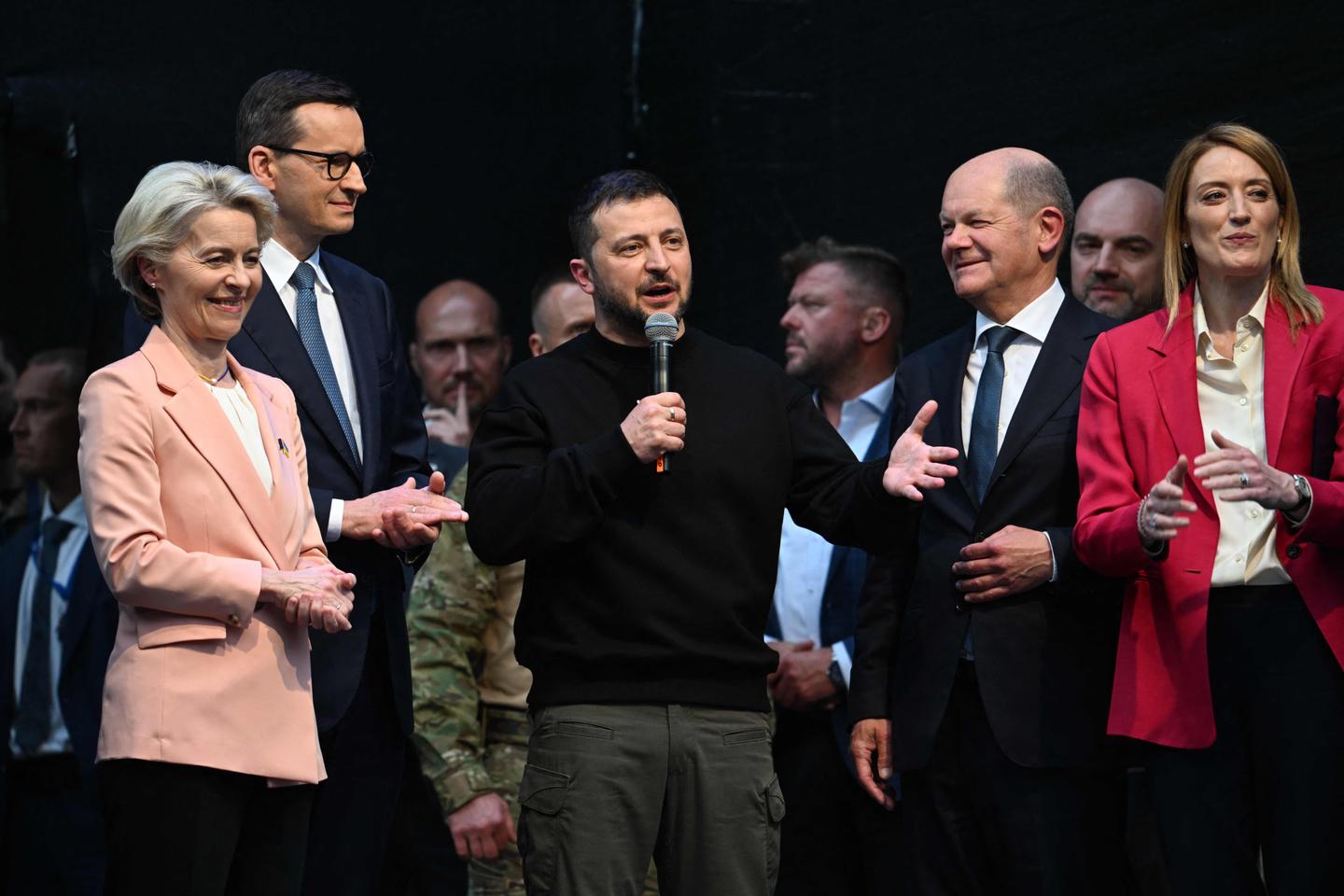


Nikos Christodoulides, the Cypriot President, does not know whether the maritime corridor he is proposing to create to support Palestinian civilians will see the light of day given how fierce the fighting is in the Gaza Strip. According to him, Benjamin Netanyahu supports the project, on condition that his own security services can check the cargoes of the ships scheduled to shuttle between Cyprus and the Gaza coast. The Israeli prime minister fears that weapons destined for Hamas could be hidden amongst the containers of food and medical aid.
More than a month after the terrorist attacks carried out by the Palestinian movement on October 7, the leader of the easternmost of the 27 member states intends above all to encourage the European Union to take a closer interest in the conflict: "We would like it to become more involved in the region, which is part of the EU's neighborhood. But we don't see any clear strategy," said Christodoulides in an interview with Le Monde. "Nobody is going to forget Ukraine, but Brussels must also be able to play a major role in the current crisis in the Middle East," he added.
After demonstrating almost perfect unity in the face of Russia's aggression in Ukraine, perceived as an existential threat to the continent, the EU-27 are hesitating over their diplomacy in the Middle East. Divisions run deep and wide, not only between member states but also between EU bodies. European Commission President Ursula von der Leyen's express visit to Israel on October 13 exasperated certain capitals, starting with Paris. It also angered her great Brussels rival, European Council President Charles Michel, who, like the High Representative for External Relations Josep Borrell, was more attentive to the anger of Arab countries. With no EU-27 mandate, von der Leyen gave her unreserved support to the Israeli government.
'Brutalization' of international relations
Since then, the very question of a "ceasefire," refused by Israel in order to better "destroy" Hamas, has divided the capitals: Emmanuel Macron, who is also struggling to find the right balance, is now in favor of it, against the advice of the German Chancellor, Olaf Scholz, anxious not to distance himself from Israel, in the name of the Hebrew state's right to defend itself. Under these conditions, it's hard to see Europeans having any influence on the course of the conflict, or even on any eventual way out of the crisis.
The leaders of the 27 know that the Israeli authorities have never heeded their recommendations, and prefer more than ever their alliance with the United States, the sole guarantor of Israel's security. What's more, after 15 tumultuous years (the eurozone crisis following Greece's bankruptcy, the migration crisis, Brexit, Covid and the invasion of Ukraine), their collective influence on the international stage, and the influence of individual member states, starting with France, appears to be waning. European soft power is no match for the "brutalization" of international relations, even in the EU's immediate neighborhood. Despite the rhetoric from Brussels, Paris and Berlin about European sovereignty, the EU has neither the experience nor the weapons to play a leading geopolitical role.
You have 45% of this article left to read. The rest is for subscribers only.
